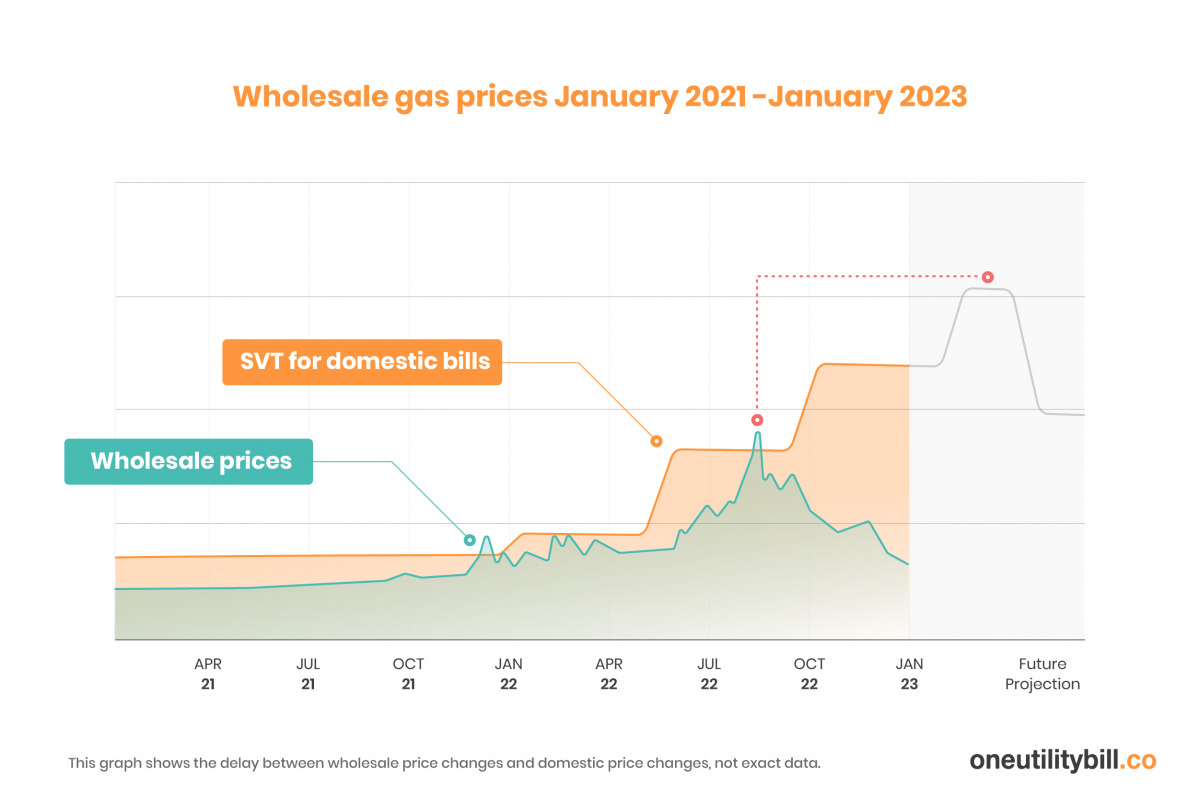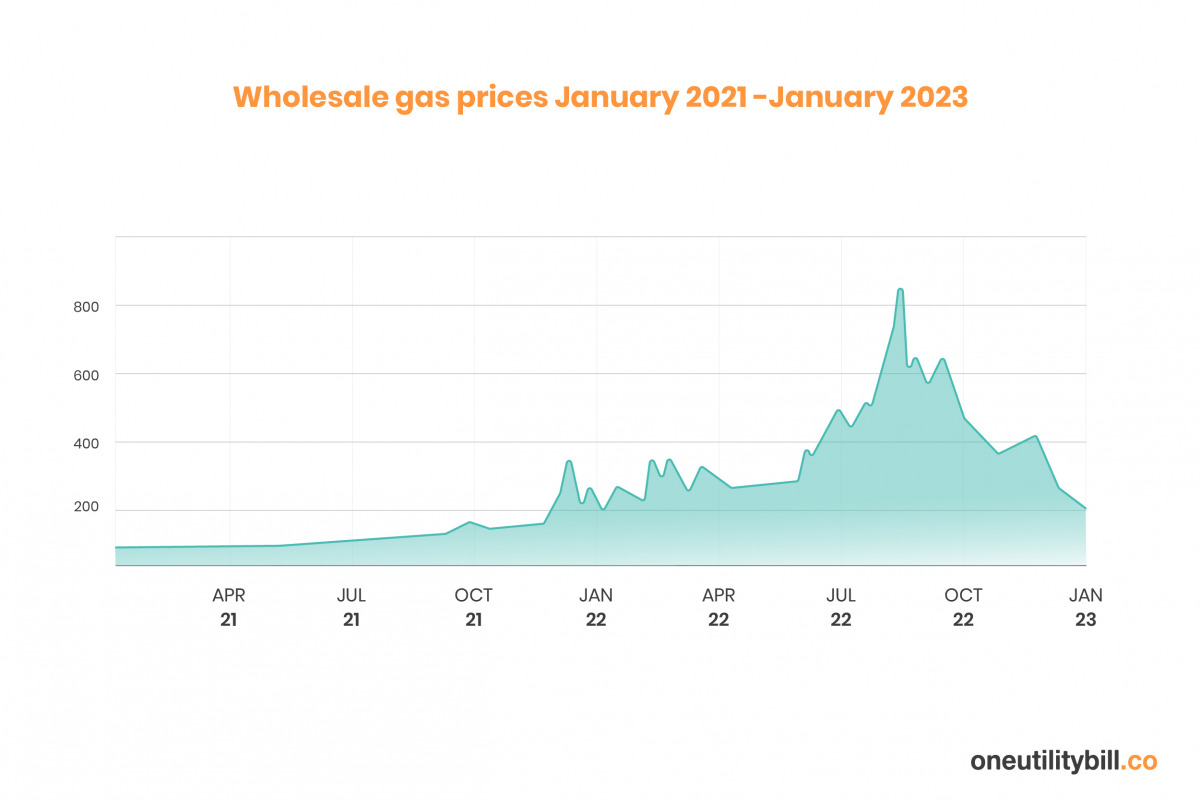Wholesale energy prices are finally coming down after more than a year of record price levels during the energy crisis around the world caused by supply issues and other problems.
Check out what's happening with your bills in our energy price cap blog.
- The reduction in energy bills started mid-2023, and while prices are still likely to fluctuate slightly, the unprecedented rises in energy bills aren't predicted to return any time soon.
- But wholesale prices started to decrease long before that, leaving a lot of people confused as to why energy suppliers didn't decrease prices straight away
If wholesale gas gets cheaper, why don't bills for households go down too?
The short version is that they do get cheaper, just not right away.
Wholesale energy prices got dramatically more expensive in 2021, which had a knock-on effect on domestic utility bills.
Wholesale gas got more expensive, which meant that electricity was in higher demand, making that more expensive too.
- In the graph below ⬇️ you can see that increases in the orange line (your bills) rise after peaks in the green line (wholesale gas prices)
This is because almost all energy companies buy their power through a process called hedging, which is buying energy in advance.
- Hedging is the practice of forecasting future energy prices and buying in bulk at those prices to meet customer demand for a set period of time.
- Hedging means the supplier doesn't go out of business if energy prices suddenly change because they always have the money (in theory) to buy the gas and electricity their customers need.
- More than 30 suppliers went out of business in 2021, because many of them didn't hedge when buying and couldn't meet rising costs.
Buying in advance means the impact of wholesale costs on bills is delayed.
Hedging is common practice in the energy market, and is a benefit to energy companies because it keeps them in business. It also helps keep energy bill prices as stable as possible for customers. "As stable as possible" doesn't necessarily mean cheap, as we've seen throughout the crisis.
In the graph below you can see this delay in rising costs on bills too - domestic costs for energy increased after wholesale energy costs did.
-
This graph shows the Standard Variable Tariff (SVT) for domestic energy bills contrasted with the price of wholesale gas.
-
You can see that the orange line (domestic bills) consistently rises after the green line (wholesale gas prices).

- What you can see in the graph, is a delay between wholesale prices rising and domestic prices rising. We see a similar delay when prices fall.
Will energy bills get cheaper in 2024?
They're unlikely to fluctuate as wildly as they did in the energy crisis. Cornwall Insights, a leading expert in the energy market, predicts two small increases to the energy price cap in January and April 2024, before another decrease in July 2024.
These increases are due to global uncertainty caused by gas supplies, and the conflict in Gaza. This pushes up the price of gas, which affects all energy costs.
This means that in first half of 2024, the cost of energy bills is predicted to go up, meaning slightly higher bills than you're paying right now, but afterJuly bills are predicted to fall again.
These changes in price are based on projected data and world events in early Nov 2023, which could change at any time.
Here's a rundown of what a One Utility Bill package is, if you're curious.
Why are energy bills so expensive in the first place?
The energy crisis had a lot of causes, which we've covered in our energy crisis roundup blog if you want more detail.
The short version is:
-
Supply issues and technical problems across Europe
-
High demand for gas and low gas stores across Europe during a very cold winter in 21/22
-
The Russian Invasion of Ukraine and the sanctions placed on Russia as a result meant a reduced supply of gas to most of Europe
-
Many other factors that affected the cost of gas, including the pandemic
Increases to the wholesale cost of gas also increased demand for electricity, as people and businesses tried to use electricity as a substitute wherever possible to keep energy costs down. High demand means higher costs. You can see the change in wholesale costs in this graph.

How can I keep my energy bill costs consistent?
An Unlimited Energy deal could be for you, and here's an in depth guide on how to sort the bills so you can see your other options. You can also find out what kind of energy user you are.
How can I reduce my energy consumption?
If you want to keep your bills lower, here's some handy energy-saving info:
Is there any other support available?
Bills management is our area, so when it comes to additional support, we're not the experts. Here are some other places that could help you:

